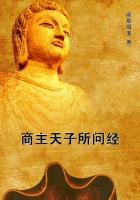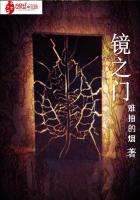Some three or four years before this, Doctor Sloper had moved his household gods uptown, as they say in New York.He had been living ever since his marriage in an edifice of red brick, with granite copings and an enormous fanlight over the door, standing in a street within five minutes' walk of the City Hall, which saw its best days (from the social point of view) about 1820.After this, the tide of fashion began to set steadily northward, as, indeed, in New York, thanks to the narrow channel in which it flows, it is obliged to do, and the great hum of traffic rolled farther to the right and left of Broadway.By the time the doctor changed his residence, the murmur of trade had become a mighty uproar, which was music in the ears of all good citizens interested in the commercial development, as they delighted to call it, of their fortunate isle.Doctor Sloper's interest in this phenomenon was only indirect- though, seeing that, as the years went on, half his patients came to be overworked men of business, it might have been more immediate- and when most of his neighbors' dwellings (also ornamented with granite copings and large fanlights) had been converted into offices, warehouses, and shipping agencies, and otherwise applied to the base uses of commerce, he determined to look out for a quieter home.The ideal of quiet and of genteel retirement, in 1835, was found in Washington Square, where the doctor built himself a handsome, modern, wide-fronted house, with a big balcony before the drawing-room windows, and a flight of white marble steps ascending to a portal which was also faced with white marble.This structure, and many of its neighbors, which it exactly resembled, were supposed, forty years ago, to embody the last results of architectural science, and they remain to this day very solid and honorable dwellings.In front of them was the Square, containing a considerable quantity of inexpensive vegetation, enclosed by a wooden paling, which increased its rural and accessible appearance; and round the corner was the more august precinct of the Fifth Avenue, taking its origin at this point with a spacious and confident air which already marked it for high destinies.I know not whether it is owing to the tenderness of early associations, but this portion of New York appears to many persons the most delectable.It has a kind of established repose which is not of frequent occurrence in other quarters of the long, shrill city; it has a riper, richer, more honorable look than any of the upper ramifications of the great longitudinal thoroughfare- the look of having had something of a social history.It was here, as you might have been informed on good authority, that you had come into a world which appeared to offer a variety of sources of interest; it was here that your grandmother lived, in venerable solitude, and dispensed a hospitality which commended itself alike to the infant imagination and the infant palate; it was here that you took your first walks abroad, following the nurserymaid with unequal step, and sniffing up the strange odor of the ailanthus trees which at that time formed the principal umbrage of the Square, and diffused an aroma that you were not yet critical enough to dislike as it deserved; it was here, finally, that your first school, kept by a broad-bosomed, broad-based old lady with a ferule, who was always having tea in a blue cup, with a saucer that didn't match, enlarged the circle both of your observations and your sensations.It was here, at any rate, that my heroine spent many years of her life; which is my excuse for this topographical parenthesis.
Mrs.Almond lived much farther uptown, in an embryonic street, with a high number- a region where the extension of the city began to assume a theoretic air, where poplars grew beside the pavement (when there was one), and mingled their shade with the steep roofs of desultory Dutch houses, and where pigs and chickens disported themselves in the gutter.These elements of rural picturesqueness have now wholly departed from New York street scenery; but they were to be found within the memory of middle-aged persons in quarters which now would blush to be reminded of them.Catherine had a great many cousins, and with her Aunt Almond's children, who ended by being nine in number, she lived on terms of considerable intimacy.When she was younger they had been rather afraid of her; she was believed, as the phrase is, to be highly educated, and a person who lived in the intimacy of their Aunt Penniman had something of reflected grandeur.Mrs.Penniman, among the little Almonds, was an object of more admiration than sympathy.Her manners were strange and formidable, and her mourning robes- she dressed in black for twenty years after her husband's death, and then suddenly appeared, one morning, with pink roses in her cap- were complicated in odd, unexpected places with buckles, bugles, and pins, which discouraged familiarity.She took children too hard, both for good and for evil, and had an oppressive air of expecting subtle things of them; so that going to see her was a good deal like being taken to church and made to sit in a front pew.It was discovered after awhile, however, that Aunt Penniman was but an accident in Catherine's existence, and not a part of its essence, and that when the girl came to spend a Saturday with her cousins, she was available for follow-my-master, and even for leapfrog.On this basis an understanding was easily arrived at, and for several years Catherine fraternized with her young kinsmen.I say young kinsmen, because seven of the little Almonds were boys, and Catherine had a preference for those games which are most conveniently played in trousers.By degrees, however, the little Almonds' trousers began to lengthen, and the wearers to disperse and settle themselves in life.The elder children were older than Catherine, and the boys were sent to college or placed in counting rooms.Of the girls, one married very punctually, and the other as punctually became engaged.It was to celebrate this latter event that Mrs.Almond gave the little party I have mentioned.Her daughter was to marry a stout young stockbroker, a boy of twenty: it was thought a very good thing.















